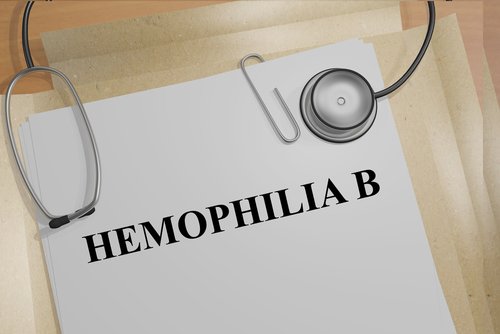Dimension to End Development of DTX101 as Gene Therapy for Hemophilia B
Written by |

Dimension Therapeutics will discontinue clinical development of DTX101, a gene therapy intended to treat moderate/severe-to-severe hemophilia B.
The decision comes after a review of data from a Phase 1/2 clinical trial (NCT02618915), which assessed and the safety and dosing of DTX101. The trial was a single arm, open-label, multi-center study. Patients enrolled in cohorts 1 and 2 had baseline levels of blood clotting factor IX (FIX) of 2 percent or less, and required either prophylactic (preventive) or on-demand recombinant FIX transfusions.
All patients showed improved levels of FIX during post-treatment follow-up, leading to an improvement from relatively severe to either moderate or mild-range hemophilia B based on World Federation of Hemophilia criteria, the company reported in January, and again in April.
But when analyzing new data from this month, Dimension found the results were not meeting the company’s expectations.
The company says it will present the data from this trial, including the results from ongoing immune and biomarker analyses, at an upcoming medical meeting.
“We are disappointed with the outcome of our DTX101 program, addressing an important disease with significant unmet need; however, our Phase 1/2 open-label clinical study did not demonstrate an ability to achieve a minimum target product profile for continued development or future commercialization,” Annalisa Jenkins, CEO of Dimension, said in a news release.
“We deeply appreciate the participation by the investigators and staff, patients and caregivers who all contributed to the conduct and execution of this Phase 1/2 clinical trial.”
Jenkins said, however, that Dimension will continue to invest in its IND-enabling (investigational new drug) activities for DTX201 for hemophilia A, in collaboration with Bayer. The company will also continue to follow and closely monitor the six hemophilia B patients who received DTX101 through a five-year extension study.
Five of six showed increased levels in their blood of a liver enzyme called alanine aminotransferase, or ALT, which can indicate of liver damage, the company also announced in April. Administration of corticosteroids to efficiently control this adverse treatment and reduce ALT levels is being given throughout follow-up.
“We remain excited about the opportunities around our IMD [Inherited Metabolic Disease] portfolio, which, unlike DTX101, utilizes the AAV8 capsid, and look forward to initial data later this year with DTX301 for OTC deficiency,” Jenkins said.
Hemophilia B is caused by FIX deficiency, because of mutations on the gene that encodes this protein. Treating and managing hemophilia B symptoms requires restoring FIX levels in the blood. DTX101 is based on an advanced mammalian adeno-associated virus (AAV) gene-delivery technology, or AAVrh10, and was intended to promote stable expression of FIX in these patients.


